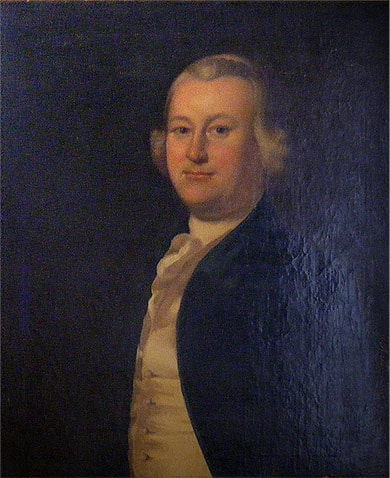by Heather Rockwood, Communications Manager
On 22 April 1790, John Adams and Congress learned of Benjamin Franklin’s death due to pleurisy, a lung condition. Upon learning of his friend’s death, Adams wrote an imagined conversation between four historical figures, as they waited for Franklin’s arrival in the afterlife. Adams then filed it away and more than two decades later came across it while searching “among a heap of forgotten rubbish for another paper….” In 1813, he added to the bottom of the work:
“Quincy Nov. 24. 1813.
This little thing, was written at Richmond Hill, or Church Hill, where I lived in New York in 1789, in an Evening after the News arrived of Dr Franklins Death, and after I had retired to my Family, after presiding in the Senate of U.S. The moment when it was written is the most curious Circumstance attending it.”
This style of writing—the imagined conversation—was popularized by the Syrian satirist Lucian of Samosata (b. ca.120 CE) and was utilized by the French writer Bernard Le Bovier de Fontenelle (1657–1757). The conversationalists in this imagined scenario were Charlemagne (747–814), the first Emperor of the Holy Roman Empire; Frederick II (1194–1250), another Emperor of the Holy Roman Empire; Jean Jacques Rousseau (1712–1778), a French philosopher, originally from Switzerland, whose novels inspired the French Revolutionaries and the subsequent Romantic generation; and James Otis (1725–1783), a lawyer and politician from Massachusetts and a friend and mentor to John Adams, who also happens to be one of my favorite pre-Founding Fathers.

The conversation starts discussing Franklin and whether he had “passed the River,” perhaps meaning the River Styx, with Otis saying he had not and he cared not. Otis also says, “[Franklin] told some very pretty moral Tales from the head—and Some very immoral ones from the heart. I never liked him: so if you please We will change the subject. Populus Vult Decipi, decipiatur was his Maxim.” Populus Vult Decipi, decipiatur is noted to mean “The people want to be deceived, so let them be deceived.”
That sentence captures James Otis’s eloquence with words, as well as Franklin’s temperament. Perhaps John Adams should have been a writer, not a politician?
Then the speakers move on to flattering each other, then chastising each other for their faults. In turn, each repents, saying if he returned to earth, he would mend his ways and warn others against acting how he did the first time around.
Upon discovering this piece of writing in 1813, John Adams sent it to James Otis’s sister, Mercy Otis Warren, a playwright and historian. She wrote back, “The sketch in my hand in connection with some of the greatest actors who have exhibited their parts on this narrow stage of human action, is a proof of your correct knowledge of history and your capacity for comparing the ages of Charlemagne, Frederick the Great, Rousseau, and Otis, though in times so remote from each other, and drawing the results of their sentiments and transactions and the operation thereof on the moral conduct of mankind in our own age and in that of Posterity.”
Read the entire Dialogues of the Dead. Read more about James Otis and his sister Mercy Otis Warren in this Beehive blog.

